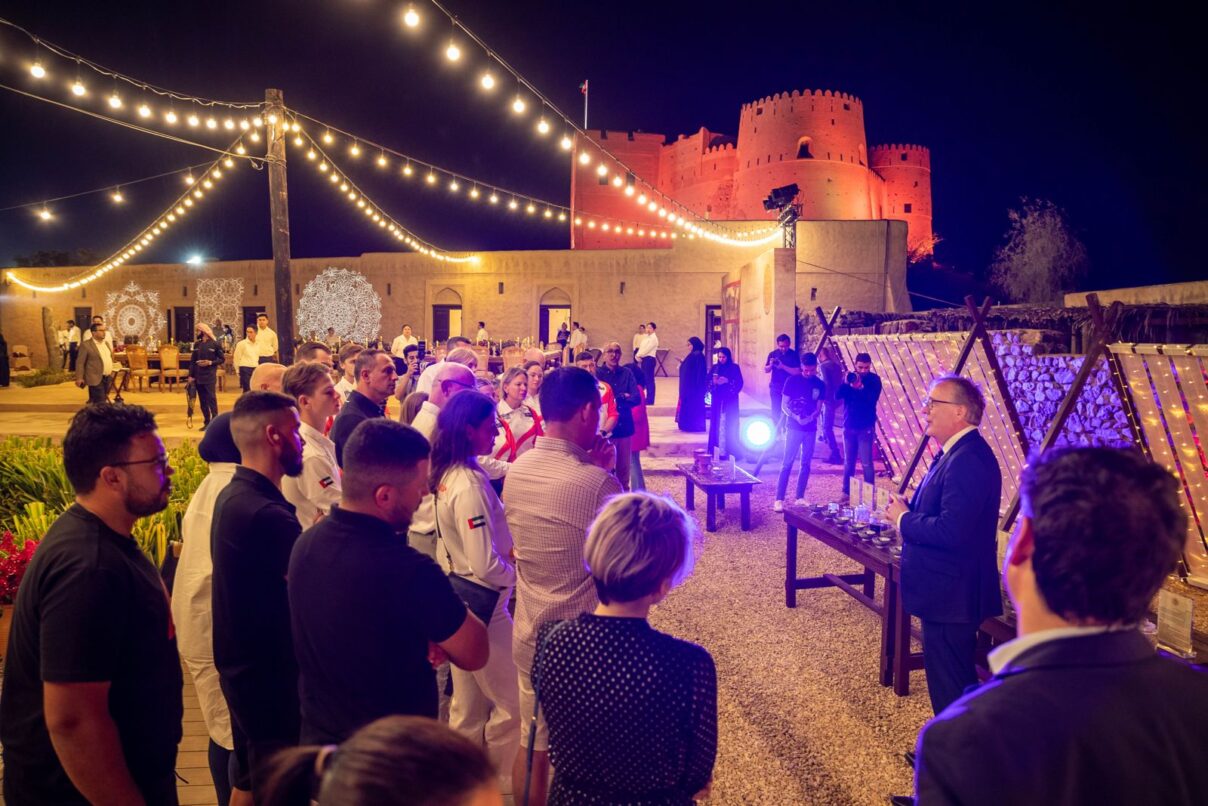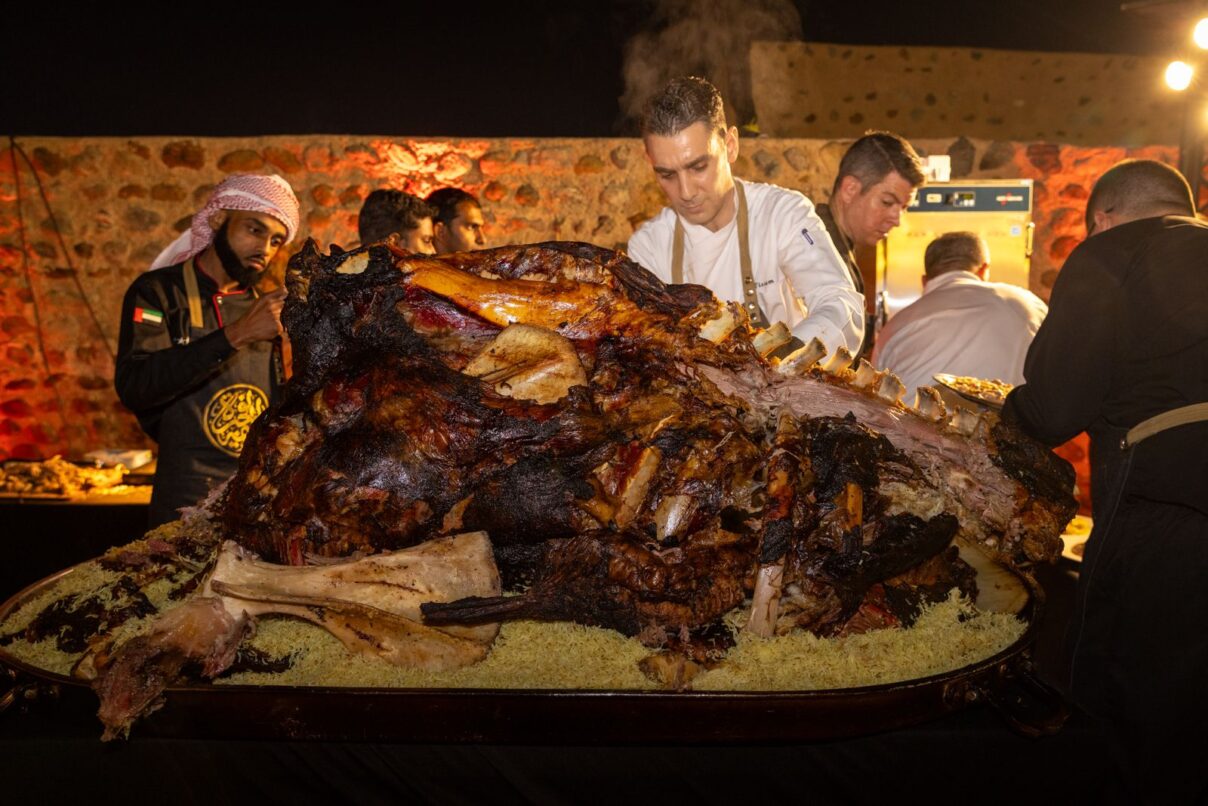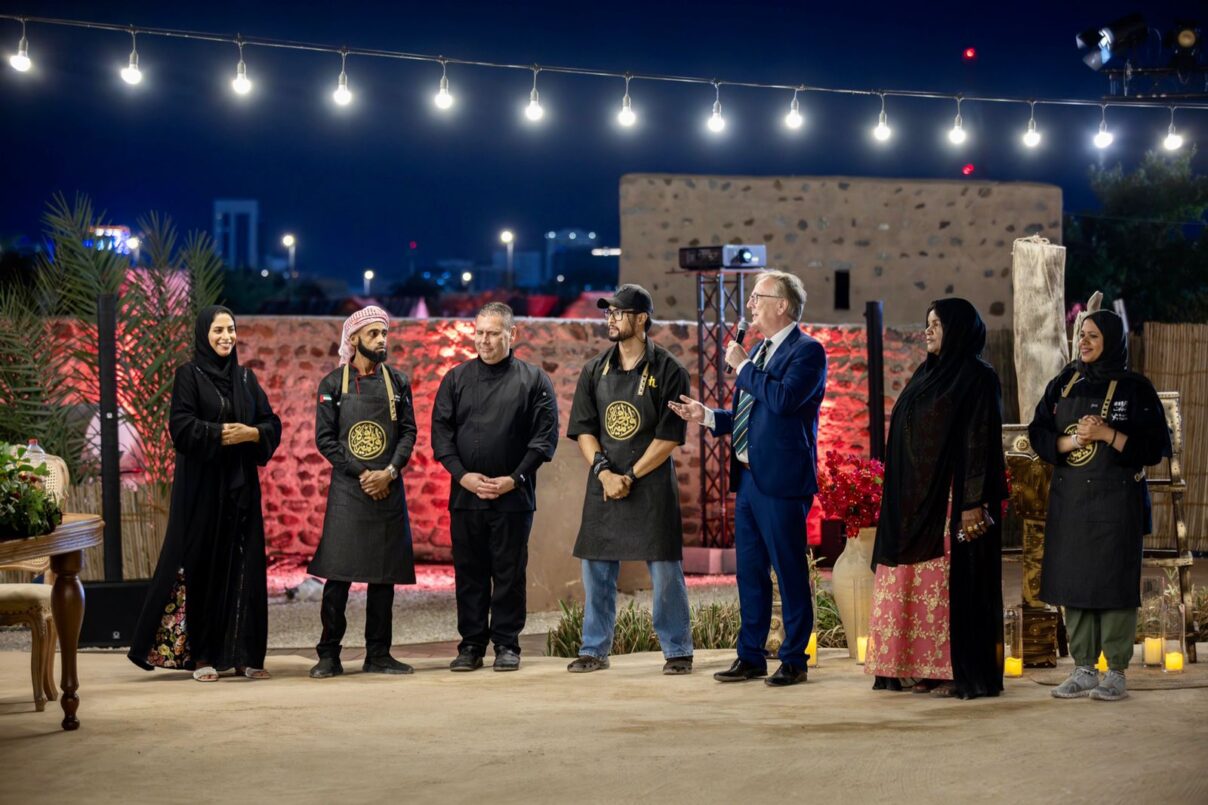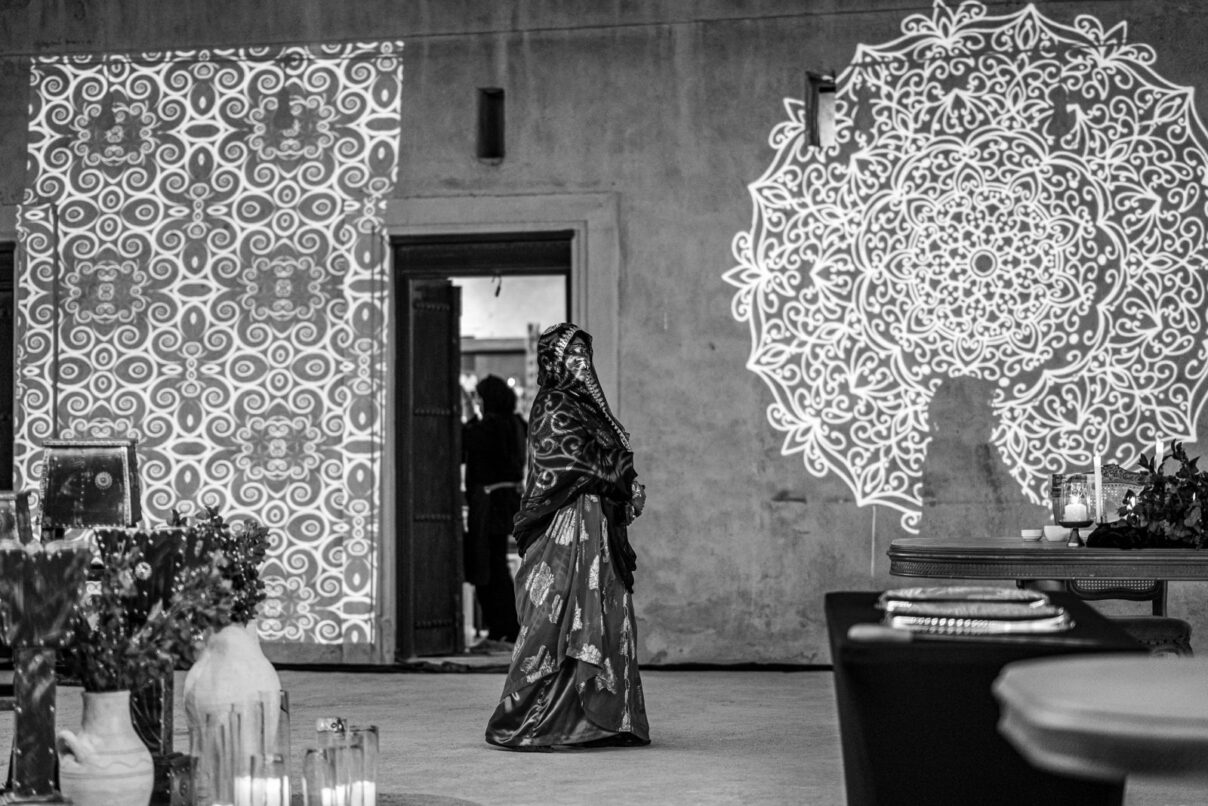Feasting in Fujairah: Medieval Arab Cooking
As part of his research project on ‘Medieval Arab Cooking: Identity and Culinary Heritage’, Daniel Newman, Professor of Arabic Studies in our School of Modern Languages and Cultures, recently curated three medieval banquets in Fujairah, United Arab Emirates. He shares some of his photos and insights from these spectacular gastronomic evenings.

In December, I curated three medieval banquets in the Emirate of Fujairah (United Arab Emirates), as part of my research project on ‘Medieval Arab Cooking: Identity and Culinary Heritage’. The events were organised under the patronage of His Highness, Sheikh Mohammed bin Hamad al-Sharqi, Crown Prince of Fujairah, who also provided generous support throughout, and in collaboration with the Fujairah Culture and Media Authority.
Baptized ‘the Fujairah Feast’, each event was intended to be a gastronomic experience showcasing the richness, complexity and sophistication of all aspects of the medieval Arabic culinary tradition, spanning a period of six hundred years (9th-15th centuries).
Roasted camel
The banquets took place in the magical setting of the 16th-century Fujairah Fort, and included twenty-one dishes, as well as beverages, all of which were based on recipes from across the entire medieval Arab culinary corpus. One of the showstoppers was undoubtedly the roasted camel stuffed with a lamb and a goat, as well as chickens, which were also stuffed inside the lamb and goat. The result was nothing short of spectacular, though it is not one that most people would be able to replicate in their home ovens!

Fujairah: Rooted to the past, connected to the present
The project was a long time in the making and involved close collaboration with the amazing local chefs Ahmed Azzam, Umm Khamees, Mas’ud al-Kindi and Abeer Allouz, who set about experimenting with the recipes and produce a feast that was rooted in the past, but also had a very clear connection to the present, through the use of local ingredients, such as fish. There were many challenges along the way, not least in sourcing the right ingredients, but also in applying historical techniques and methods.

The Fujairah feast: A multi-sensory experience
The ‘Fujairah Feast’ was a multi-sensory experience, with local artisans painstakingly reproducing a medieval hand-washing powder (dating back to the 11th century) and incense (bakhur), while musicians from the Fujairah Fine Arts Academy filled the air with medieval compositions from al-Andalus (Muslim Spain).
Upon entry, diners were able to experience and experiment with the principal spices used in the dishes as well as learn about their uses in history. During the dinner, each of the dishes was also introduced and their historical context and significance highlighted.

Find out more
- Follow Prof Newman’s Instagram (@medieval_arab_cooking) and blog (https://eatlikeasultan.com).
- Read more about food studies at Durham Edible History – Durham University
- Watch Prof Newman recreate a medieval Arab sweet in Durham University Kitchen
- Read about Prof Newman’s workshop on date-based desserts and Arabic culinary tradition at COP28, in collaboration with the Barakat Trust, Al Ghadeer Emirati Crafts and local craftswomen.
